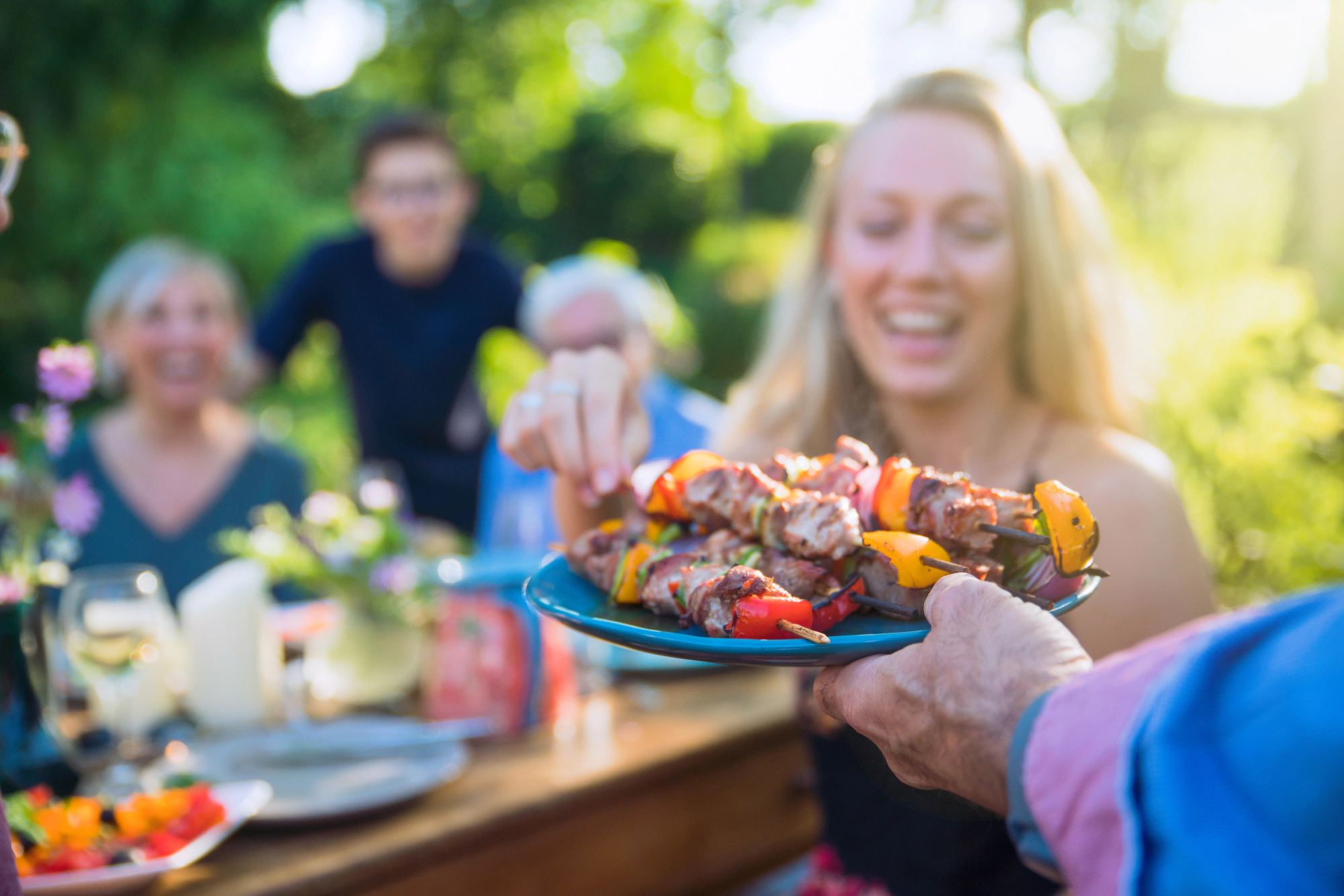How to Avoid Food Poisoning This Summer
Food Poisoning
•
May 6, 2023
Reviewed by:

As summer approaches, so do the picnics, barbecues, and potlucks — but before you get out the grill and dust off your coolers, we need to discuss tips for how to avoid food poisoning. Food is one of the best avenues for bringing people together, but it can also be the culprit for common summer illnesses like food poisoning.
How can you take part in all of your favorite summer activities while also protecting yourself and those around you? By reading these tips for how to avoid food poisoning this summer.
What causes food poisoning?
A person can get food poisoning if they eat something that has been contaminated with bacteria that causes inflammation in their intestines. Food poisoning is most likely to happen if you eat food that has not been cooked properly, is perishable and has been left out for too long, or has come into contact with dirt or fecal matter (yuck!).
Unfortunately, food poisoning can be a common occurrence if the person preparing the food is not careful…and the results are, let’s just say, not fun.
Food poisoning symptoms
What are signs of food poisoning? Thankfully, food poisoning symptoms are pretty easy to spot and may only last several hours or up to a day or two. However, there is a difference between minor and major food poisoning.
Minor symptoms include:
- Abdominal cramping
- Watery diarrhea
- Nausea
- Vomiting
- A low fever
- Chills
It’s important to note that the main difference between stomach flu vs food poisoning is that the stomach flu is caused by a spreading of a virus or bacteria from person to person, not typically from food. If you have food poisoning, your symptoms may show up almost immediately whereas the stomach flu symptoms may take a day or two to arise.
Those with food poisoning may also experience more severe episodes of vomiting and diarrhea which can lead to dehydration. Food poisoning symptoms in kids are almost identical to those in adults, so it will be simple to spot and you can get your child care promptly.
When to seek food poisoning treatment
Knowing when to go to the ER for food poisoning can be helpful in getting care fast. If you are experiencing any of the following symptoms, go to your nearest emergency room for assistance.
- Vomiting so frequently that you can’t keep liquids down
- Have bloody diarrhea or regular diarrhea that lasts for more than three days
- Have a fever over 102°
- Feel dehydrated
Four tips for how to avoid food poisoning
1. Get rid of germs by washing your hands
Before you even touch a parcel of food, washing your hands should be your first step. After that, you should periodically wash your hands after interacting with any raw or uncooked foods like meat, seafood, eggs, or flour. This will eliminate any germs that could be passed from your hands to the food that you and other people will be consuming — and it only takes 20 seconds!
2. Avoid cross-contamination
Cross-contamination is one of the most overlooked reasons why food poisoning occurs. It is crucial that you do not let raw meat or other uncooked items come into contact with anything that will be used to prepare already cooked or readily eaten food, like fruits or vegetables.
We understand that food preparation can be stressful if you have a lot going on at once. However, taking a few minutes to properly wash utensils, cutting boards, and other cooking tools can be the difference between a fun day in the sun or a night spent over the toilet.
3. Use a food thermometer
A main cause of food poisoning is consuming food that has not been properly cooked. Raw foods like meat, poultry, eggs, and flour need to be cooked to specific temperatures in order for them to be safe to eat, and the best way to make sure of that is to use a food thermometer.
Some cooks use color and texture to determine when food is cooked, but relying on your judgment can come with consequences if you’re wrong. Why risk it? Using a food thermometer will let you know that the food is cooked properly and safe to consume.
4. Keep food refrigerated
Before, during, and after the cooking process, it’s important to keep all perishable food items refrigerated either in the refrigerator or an insulated cooler filled with ice or frozen packs. To keep the cooler chilled, try not to leave the lid off longer than it takes to retrieve an item, and keep the cooler in a shaded area at all times. This will help keep the food inside from spoiling. No one wants to be blamed for serving potato salad that’s been left in the hot sun.
Think you have food poisoning? Complete Care is here to help!
Now that you are more aware of how to avoid food poisoning, you can take the necessary steps to keep yourself and your loved ones safe. If you do end up coming into contact with contaminated food, just know that most cases of food poisoning can be treated at home but severe cases that include dehydration may be best treated in an emergency room. Complete Care is a freestanding ER that is open 24/7 with low wait times and hospital-grade equipment. We can help you combat dehydration while checking for any signs of organ damage and prescribing any necessary medication to help you recover quickly.
We have ER locations all over Texas (Austin, Corpus Christi, Dallas/Fort Worth, East Texas, Lubbock, and San Antonio) and in Colorado Springs. You can have a happier and safer summer knowing that Complete Care is here to care for you.
More Helpful Articles by Complete Care:
